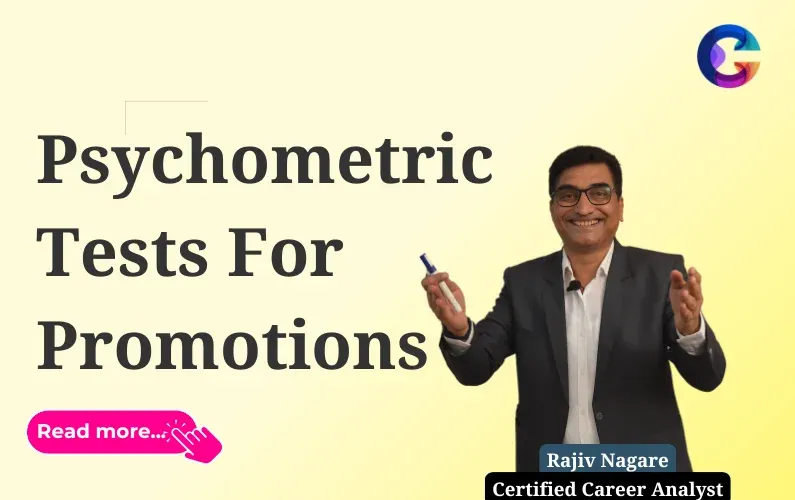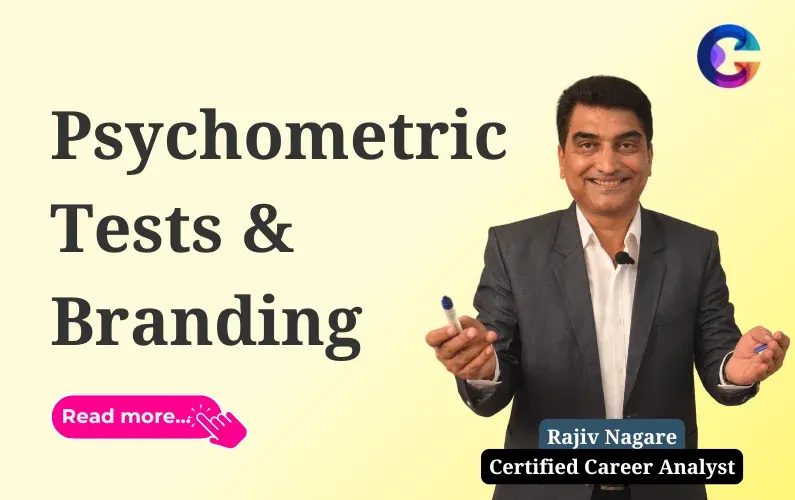How Do Psychometric Tests Help in Career Planning?
Planning a fulfilling career requires a deep understanding of your personality, skills, and interests. While traditional methods like trial-and-error or general advice from peers might provide limited guidance, psychometric tests offer a scientific and reliable approach. These tools have revolutionized career planning by helping individuals identify their strengths, align their interests, and map realistic career paths.

The Role of Psychometric Tests in Career Planning
Psychometric tests are structured tools designed to measure various aspects of a person’s psychological profile, including personality traits, cognitive abilities, and career interests. By objectively analyzing these dimensions, these tests provide actionable insights for making informed career decisions.
Unlike subjective opinions, psychometric assessments rely on standardized and unbiased methods, ensuring accurate results that are tailored to individual needs.
Key Benefits of Psychometric Tests for Career Planning
1. Enhancing Self-Awareness
Understand your personality, strengths, and areas for improvement to make better career decisions.
2. Identifying Career Interests
Discover the industries and roles that align with your preferences and passions.
3. Aligning Strengths with Career Paths
Match your natural abilities and skills with the demands of potential job roles.
4. Overcoming Career Stagnation
Gain clarity and direction to navigate out of unproductive career phases.
How Psychometric Tests Identify Career Interests
Career interest inventories, such as the Holland Code (RIASEC), assess an individual's inclination toward specific career clusters like Realistic, Investigative, Artistic, and Enterprising.
How It Works:
- The test identifies dominant interests based on preferences.
- Matches these interests with suitable job roles and industries.
For example, someone with a high score in the Investigative category might excel in analytical fields like research or data science.
Personality and Career Fit: A Psychometric Approach
Your personality plays a crucial role in determining job satisfaction and performance. Psychometric tests like the Myers-Briggs Type Indicator (MBTI) categorize personality traits, helping individuals understand their work styles and preferences.
For instance:
- Introverts may thrive in roles requiring focus and minimal social interaction, such as data analysis or writing.
- Extroverts might excel in dynamic environments like sales or team leadership.
By aligning personality traits with job requirements, psychometric assessments increase the likelihood of success and fulfillment.
Assessing Skills and Abilities for Career Success
Cognitive ability tests measure essential skills such as:
- Numerical Reasoning: Required in finance, analytics, and engineering roles.
- Logical Thinking: Vital for problem-solving and strategic planning.
- Verbal Proficiency: Crucial for communication-driven roles like marketing or HR.
Psychometric results highlight skill gaps, enabling professionals to focus on relevant training and development for career advancement.
Psychometric Tools for Setting Career Goals
Psychometric assessments not only provide insights but also translate them into actionable goals.
- Short-Term Goals: Improving specific skills or certifications.
- Long-Term Goals: Mapping out career transitions or leadership aspirations.
With clear data, individuals can design a career plan that aligns with both personal aspirations and market demands.
Industry Use Cases of Psychometric Tests
Psychometric tests are widely adopted across industries:
- IT and Tech: Assess logical reasoning and technical aptitude for coding roles.
- BFSI (Banking, Financial Services, and Insurance): Evaluate numerical reasoning for investment and risk management jobs.
- Manufacturing: Identify operational efficiency and leadership potential in managers.
How Psychometric Insights Lead to Career Growth
1. Choosing High-Growth Roles
Identify roles and industries with promising futures.
2. Understanding Market Trends
Adapt to evolving industry requirements by focusing on the right skills.
3. Improving Decision-Making
Base your career moves on data rather than guesswork.
Overcoming Career Challenges Using Psychometric Tests
- Stagnation: Identify opportunities for lateral or vertical growth.
- Career Shifts: Find roles that align with existing skills while leveraging transferable abilities.
Psychometric tools act as a bridge, connecting current capabilities with desired career goals.
Myths About Psychometric Tests in Career Planning
1. “They are only for freshers.”
These tests benefit professionals at all stages of their careers.
2. “They guarantee job success.”
While they provide clarity, consistent effort and learning are still necessary.
3. “They are not reliable.”
Psychometric tests are scientifically validated, ensuring accurate results.
Practical Steps for Leveraging Psychometric Tests
1. Take the Test
Choose a reliable psychometric assessment, like the Suitability Test.
2. Analyze Results
Review insights on personality, skills, and career interests.
3. Seek Expert Guidance
Consult a certified career counselor to create an actionable plan.
4. Implement the Plan
Focus on the recommended steps for achieving your goals.
FAQs About Psychometric Tests and Career Planning
1. How accurate are psychometric tests for career planning?
Highly accurate when conducted with standardized tools.
2. Can they predict career success?
While they offer clarity, success depends on effort and adaptability.
3. Do they work for all industries?
Yes, but specific tests may cater to particular sectors.
4. How do I choose the right test?
Consider your career stage and consult a career expert.
5. Can psychometric tests help mid-career professionals?
Absolutely! They are useful for career transitions and growth.
6. Are psychometric tests available online?
Yes, reliable options are accessible online for convenience.
Unlock Your Career Potential with Psychometric Tests
Psychometric tests are transformative tools that empower individuals to plan their careers with clarity and confidence. By uncovering your personality, skills, and interests, these assessments enable you to make informed decisions and achieve professional growth.















